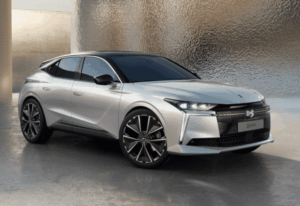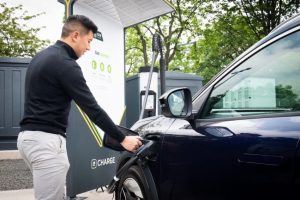The UK government announced £1.4 billion in funding to accelerate electric vehicle adoption across the country, according to Chancellor Rachel Reeves’ latest spending review.
The investment forms part of a broader £2.6 billion Clean Energy initiative running through 2030. Officials say the funds will support uptake of electric cars, vans, and heavy goods vehicles nationwide.
The government’s plan requires 100% of new vehicles sold in the UK to be zero emission by 2035 as part of its transition to a zero-carbon economy.
Charging Infrastructure Gets £400M Boost
Reeves allocated £400 million specifically for EV charging infrastructure to expand the existing network of public charging points. Government data shows around 76,500 public chargers now operate across the UK – roughly 32% more than in 2024.
The spending review didn’t specify how remaining funds will support EV adoption.
Industry leaders criticized the announcement for failing to address key barriers to electric vehicle uptake. The spending review lacks clarity on EV market support, according to automotive industry observers.
Ian Reid, head of editorial at Carwow, identified pricing and charging access as the biggest obstacles facing potential EV buyers.
“Price and charging remain the biggest friction points. Equalising the VAT between home and public charging is a simple fix – right now, it’s cheaper to charge on a driveway, which just isn’t fair or practical for millions of people in flats or urban areas.”
Reid called for more direct government action beyond infrastructure spending.
“Halving VAT on new EVs and removing the cost barriers on charging would give consumers the confidence they need – and signal that Britain is serious about making the EV transition work. The private sector is ready. Now it’s time for government to step up.”
Consumer Interest Surges Despite Policy Gaps
Carwow data shows battery electric vehicle enquiries jumped 77% between May 2024 and May 2025, indicating growing consumer interest despite affordability concerns.
“What we need now are fiscal policies that keep up with that demand – from direct purchase incentives to scrapping VAT on public charging. This isn’t just about helping drivers make the switch – it’s about protecting jobs, attracting investment, and staying on track to meet our net zero targets.”
Vicky Edmonds from the Electric Vehicle Association England echoed concerns about unequal access to affordable charging.
“VAT on public charging alongside more planning and regulatory barriers, continues to promote a ‘two-tier’ system between EV drivers with and without access to reliable and cost-effective home charging.”
The spending review didn’t address the government’s Expensive Car Supplement, which applies additional taxes to EVs costing more than £40,000. Industry observers hope officials might raise this threshold in the upcoming Autumn Budget.
The current VAT structure charges 5% for home charging but 20% at public charging points – creating cost disparities that particularly affect urban drivers without private driveways.





